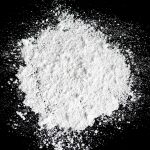Most hard drugs like methamphetamine, heroin, and cocaine are generally only detectable in urine tests for two or three days after the last dose. But cannabis, also known as marijuana, can be detected in urine for up to 30 days after last use.
Urine Detection Period For Cannabis
Urine tests are the most common form of drug testing in the United States by far. They can reveal the use of cannabis 10 to 30 days after your last dose, especially if you’re a heavy user.
If you use cannabis infrequently, you may test positive for between 1 to 3 days after last use. If you use marijuana moderately, it can be detected in urine for between 7 to 21 days later.
Keep in mind, however, that these are only rough estimates.
How Long Can Marijuana Be Detected In Other Drug Tests?
Other, less-common types of tests that can be used to detect the use of cannabis as well as other controlled substances include:
- saliva testing: 1 to 2 days after last use
- blood testing: 1 to 2 days after last use
- hair testing: 90 days or less for heavy users; unreliable for occasional users
Why Marijuana Has A Long Detection Period
When cannabis is used, either orally in food or drink or through smoking or vaping, a variety of chemicals known as cannabinoids are released into the bloodstream.
From there, they are carried across the body, interacting with the brain and the rest of your central nervous system. These cannabinoids are eventually processed and metabolized by your liver before being released from the body in urine.
THC & Body Fat
While many other psychoactive drugs follow the same pattern as above, the primary metabolite for the cannabinoid compound delta-9-tetrahydrocannabinol (THC), the mind-altering component of cannabis, is fat-soluble.
This means that this metabolite, tetrahydrocannabinol carboxylic acid (THC-COOH), tends to get stuck in your body fat, with small amounts leaching out slowly over a long period of time.
Frequency Of Use
Those with a high frequency of use will tend to accumulate a larger and larger amount of THC metabolites in their fatty tissues. And during drug screenings, this buildup can trigger a positive result even if you were to abstain for an extended period of time.
CBD, another well-known cannabinoid, is not a controlled substance and is not tested for or used as evidence of cannabis use.
Factors Influencing Cannabis Detection Times
Certain factors have a strong influence over how likely cannabis can be detected in your urine sample after a given amount of time.
These factors include:
- THC levels in your specific cannabis product
- frequency of cannabis use
- whether your last dose involved smoking cannabis or consuming edibles
- the amount of your last dose
- your metabolism, which may be influenced by overall health, age, gender, and even
- ethnicity
- hydration
- body mass index (BMI) and amount of body fat
- test sensitivity
Cannabis Half-Life
Half-life refers to the length of time it takes for 1/2 of a dose of a particular drug to be cleared from the body. Drugs with shorter half-lives are cleared much more quickly than drugs with long-half lives.
It typically takes around five half-lives to completely remove a particular substance from the body, at which point (in most cases) it becomes undetectable in drug screenings.
Unlike other drugs of abuse, cannabis is a complex and varied blend of dozens of different natural cannabinoid compounds, each of which has its own unique metabolites with varying half-lives for each.
THC has a half-life of only 30 minutes and is not sought after in urine drug tests directly. Instead, tests target THC-COOH, which has a half-life of between 1.3 and 13 days depending on the doses taken and your level of use, as well as other factors listed above.
Beating Drug Tests
In many states and industries, marijuana use can pose a major issue for those looking for employment or seeking to keep their jobs. Cheating in order to get a clean test result, and covering up your drug use, is both dishonest and risky.
While a wide variety of detox programs and schemes are available online, the truth is that there is no reliable way to pass a drug screening while cannabis is in your system.
Your best option, then, is also your simplest: abstaining from cannabis long-term and allowing the drug to pass out of your body entirely.
Treating Marijuana Use Disorder
If your use of marijuana is harming your social, physical, or mental health, and you find yourself unable to cut back, you may have developed a condition known as marijuana use disorder or marijuana addiction.
While generally considered less dangerous or harmful than many other drugs, marijuana use disorder can nevertheless be a serious problem for some.
However, this condition can be treated using a variety of proven interventions and behavioral health treatments, including:
- counseling
- peer support
- behavioral therapy
For information on our outpatient services, please contact Northeast Addictions Treatment Center today.
Sources
Written by
Northeast Addition Editorial Team
©2024 Northeast Addition Center | All Rights Reserved
This page does not provide medical advice.



